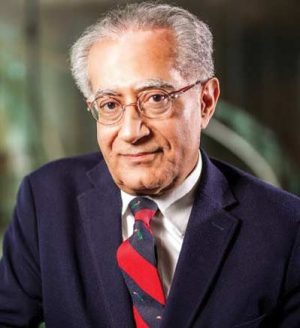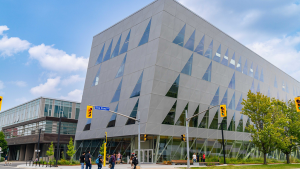Concordia University in Montreal wants to lead the charge in driving the Canadian construction industry into the digital age.
The school has launched a new Centre for Innovation in Construction and Infrastructure Engineering and Management (CICIEM) aimed at putting Industry 4.0 front-and-centre and getting companies and workers to embrace and adopt technology like drones, digital imaging and remote sensing applications.
“We have to keep on advancing this because it’s important, it’s cost-effective and enhances the productivity and competitiveness of the stakeholders in construction,” said Osama Moselhi, a professor in the building, civil and environmental and engineering department who is leading the project.
“You should never accept the status quo if you are seeking improvement and if you want to be a leader in any sector you have to do things better.”
While construction has taken some steps to embrace digital tools, the industry still has a long way to go, says Moselhi, and it must continue to develop and use more technologies like automation, robotics, artificial intelligence (AI), data analytics and Internet of Things (IoT) applications to revitalize infrastructure.
As director of the CICIEM, Moselhi is working with a team of academics and leaders in construction to put technologies in the limelight and come up with solutions to better manage work on construction sites.
Academics will also work with industry to learn what kind of IoT devices are needed and come up with ways to get the most out of allocations by municipal governments for maintenance, rehabilitation and renewal of civil infrastructure assets. The centre will co-ordinate research projects and share project data.

Moselhi, an expert and pioneer in infrastructure engineering management, who authored a book about robots and automated machines in construction, says that robots, smart systems, AI and virtual and augmented reality will play a big part in the future of construction and the industry must learn to use them.
The CICIEM has 17 faculty members, an advisory board comprised of executives from high-profile companies like Canam Group, Hatch, Hydro Quebec and SNC-Lavalin, and is looking at five main areas of research.
“The main idea behind the creation of the centre was to get together a talented number of professionals at Concordia in five departments. We’re making good use of research labs and 17 faculty members who have joined us to form the centre to create a more skilled industry,” says Moselhi. “We can deal with a wide range of issues coming in from the industry in terms of advanced knowledge and development.”
One of the research areas is related to automation and robotics in construction. Researchers are looking at Industry 4.0 trends related to automation and how the data exchange and processing is done.
Moselhi says researchers are working on how to capture the data from construction sites and get a better handle on how to organize, store and process the information so it can be used for decision-making.
“We have to really organize that data and then you have to process the data and that is where the optimization algorithms, the computer simulations, the various computations could be advanced. At the end of the day, you want to give the decision-maker actionable data,” he says.
Researchers are also looking at remote sensing technologies and IoT applications and developing new algorithms to extend advancements in sensing to improve worker safety and decision-making on projects.
“We have developed prototype technologies in that field and are expanding its use on a wide range of applications in construction, including near-real-time productivity assessment of earthmoving operations, non-invasive and non-destructive condition assessment tools for bridges, water distribution networks and sewermains,” says Moselhi.
The centre is also investigating how data from big cities can be used to set a new course for planning, construction and operation of physical urban infrastructure. Furthermore, it is looking at how to use knowledge from industrial engineering and supply chain management to advance the research and practice in areas of the industry such as offsite and modular construction and 3D printing.
“We want to meet the challenges of the construction industry by leveraging the nationally and internationally recognized critical mass and diverse know-how of its members and by conducting large-scale interdisciplinary research in innovative construction and sustainable and resilient civil infrastructure,” says Moselhi.
The CICIEM is also looking to embrace automation and sustainable and resilient civil infrastructure systems such as roads, water and sewermains, and how to use allocated budgets to preserve and make better use of the assets, he explains.
Moselhi, who is known for his use of AI in diagnosing sewer defects, says the university has a lot of civil infrastructure experts who are doing research projects in construction, so it was important to get them together.
“There are a number of areas where we can collaborate with industry but the important thing is we really to have that healthy exchange and support,” he adds.










Recent Comments
comments for this post are closed